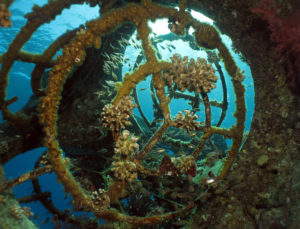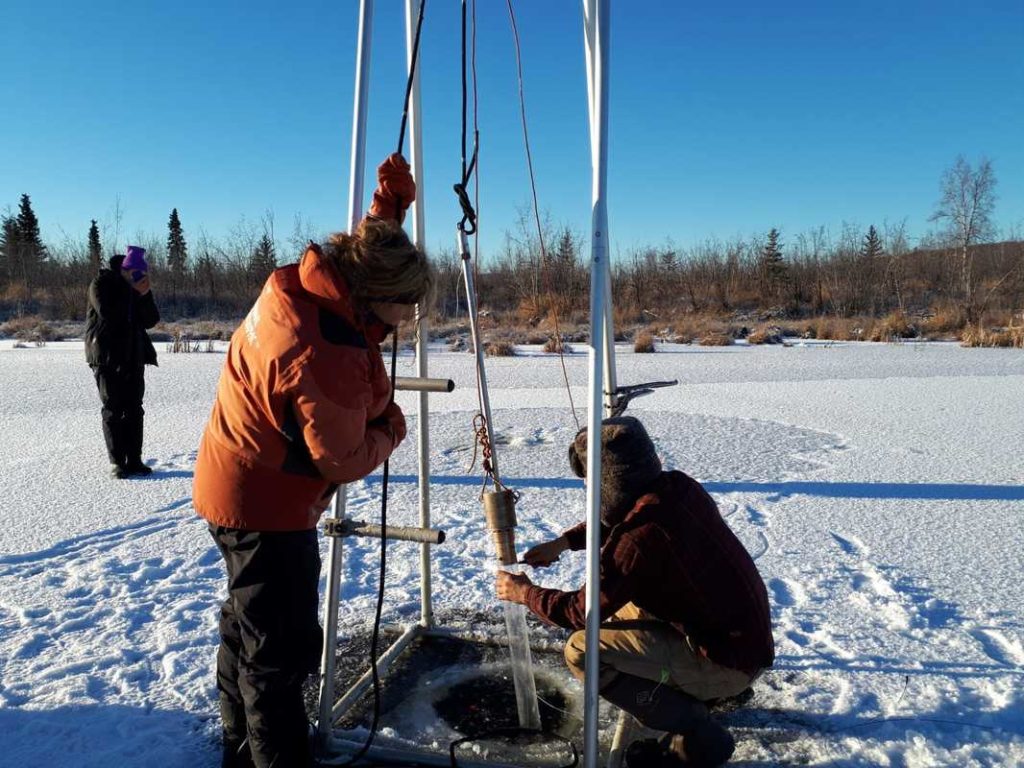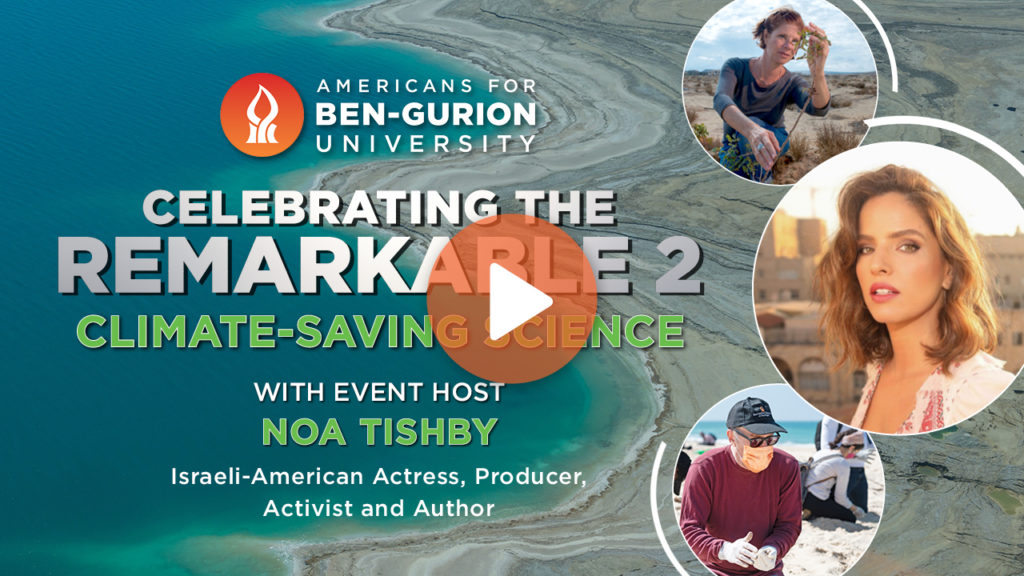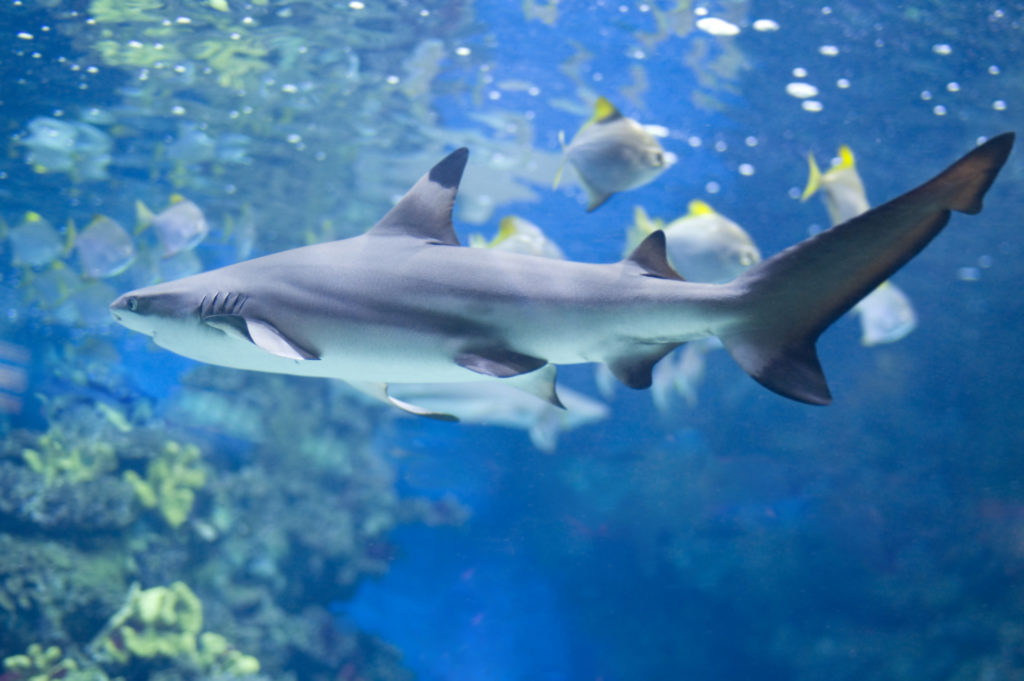
Divers Take to Artificial Reefs
September 5, 2017
Natural Sciences, Press Releases
Artificial, man-made reefs can be more attractive to divers than nearby natural coral formations and can help mitigate potential reef damage, according to a new study by Ben-Gurion University of the Negev (BGU) researchers.
The paper, published in the Journal of Environmental Management, examines artificial coral reefs as “recreational ecosystem services,” offering a new methodology to evaluate the aesthetic, behavioral and attitudinal aspects of which artificial reefs around the world can be evaluated.
“This new approach takes into account divers’ preferences and needs alongside physical preservation of natural reefs,” says Dr. Yaniv Belhassen of BGU’s Department of Hotel and Tourism Management on the Eilat Campus. “Artificial reefs are only effective if divers continue to be drawn to them.”
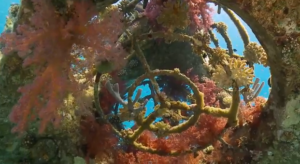
The Tamar Reef in the Gulf of Eilat, part of an artificial reef project between BGU and Jordan to preserve coral habitats
Artificial reefs, concrete structures, sunken ships, and even submerged subway cars are increasingly being used around the globe to attract recreational divers, for both environmental and commercial reasons.
The Tamar Reef, an artificial reef project begun in 2006, is a collaboration between BGU researchers and Jordan to restore the local reef culture in the Red Sea.
Students and faculty from both countries work together in studying the artificial reef and how it affects the marine ecology in the area. Special nurseries were established to regenerate lost coral species and augment coral diversity. Small fragments developed into large corals and were planted on the artificial reefs.
The researchers examined diving habits and behavior around Eilat’s natural and artificial reefs. According to study, the average diver density at the artificial reef was higher than at the two nearby natural knolls, and the Tamar reef effectively diverts divers from natural knolls.
Secondly, the study found that regarding attitudes toward natural versus artificial reefs, divers consider the artificial reefs more appropriate for training, but they feel less relaxed around them. According to the research, the sunken ship, Satil, is Eilat’s most popular dive spot.
Prof. Nadav Shashar of the Department of Life Sciences and his student, Meghan Rousseau, from South Africa also contributed to the study.
“With the opening of the Eilat Ashkelon Pipeline Company beach to the public, where it is mostly artificial reefs in the form of pylons, one can hope that the natural reefs in the nature reserve will indeed improve,” says Prof. Shashar.
According to a recent report on the status of the Gulf of Eilat, the natural reefs have not been holding up well in recent years.
This study was partly supported by the Schechter-Schwab Charitable Fund and by a grant from the Schulich Ocean Studies Initiative.
ABOUT AMERICANS FOR BEN-GURION UNIVERSITY
By supporting a world-class academic institution that not only nurtures the Negev, but also shares its expertise locally and globally, Americans for Ben-Gurion University engages a community of Americans who are committed to improving the world. David Ben-Gurion envisioned that Israel’s future would be forged in the Negev. The cutting-edge research carried out at Ben-Gurion University drives that vision by sustaining a desert Silicon Valley, with the “Stanford of the Negev” at its center. The Americans for Ben-Gurion University movement supports a 21st century unifying vision for Israel by rallying around BGU’s remarkable work and role as an apolitical beacon of light in the Negev desert.
About Ben-Gurion University of the Negev
Ben-Gurion University of the Negev embraces the endless potential we have as individuals and as a commonality to adapt and to thrive in changing environments. Inspired by our location in the desert, we aim to discover, to create, and to develop solutions to dynamic challenges, to pose questions that have yet to be asked, and to push beyond the boundaries of the commonly accepted and possible.
We are proud to be a central force for inclusion, diversity and innovation in Israel, and we strive to extend the Negev’s potential and our entrepreneurial spirit throughout the world. For example, the multi-disciplinary School for Sustainability and Climate Change at BGU leverages over 50 years of expertise on living and thriving in the desert into scalable solutions for people everywhere.
BGU at a glance:
20,000 students | 800 senior faculty | 3 campuses | 6 faculties: humanities & social sciences, health sciences, engineering sciences, natural sciences, business & management, and desert research.
For all press inquiries, please contact:
James Fattal, J Cubed Communications
516.289.1496

